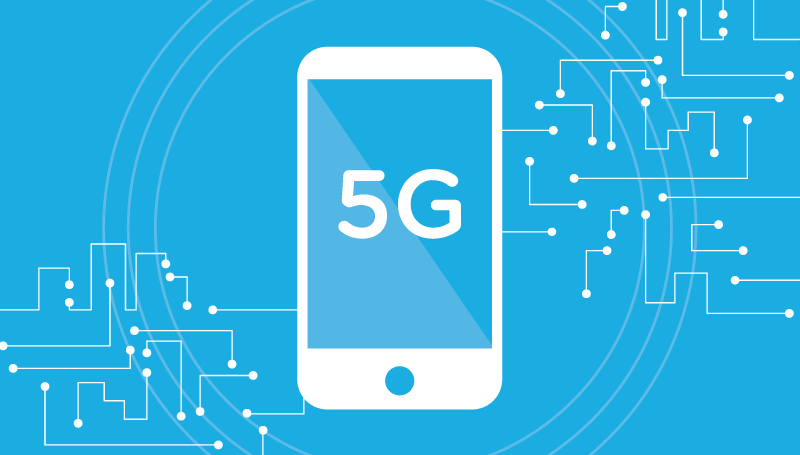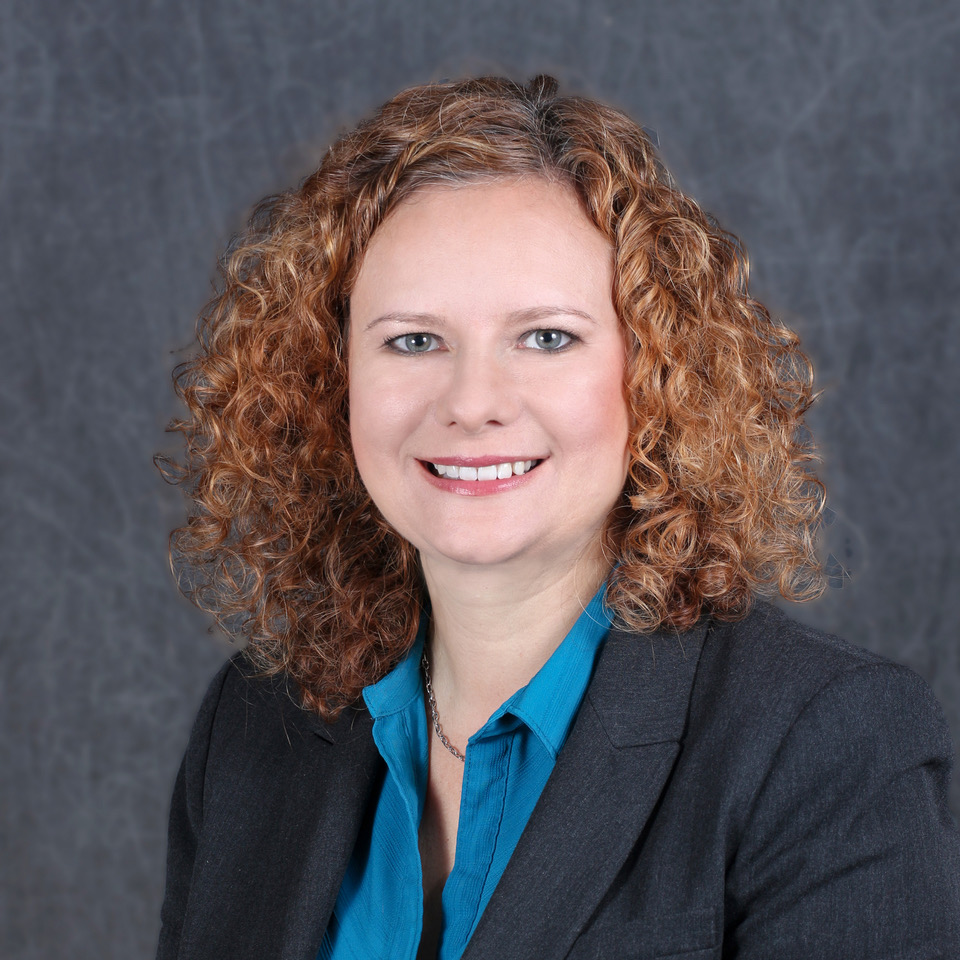
Photo: phone-5g-city
Can 5G help close the digital divide?
05 August 2019
by Jonathan Andrews
Jonathan Andrews asked a group of North American CIOs–from Chicago, Salt Lake City, Long Beach and Kansas City–what their cities are doing to close the digital divide
What steps are being taken in your city to close the digital divide and the device divide?
 Danielle DuMerer, former CIO & Commissioner, City of Chicago
Danielle DuMerer, former CIO & Commissioner, City of Chicago
In Chicago we believe it’s critical that we make information and technology accessible to our residents through key anchor institutions like our libraries and senior citizen centres. Thanks to the partnership with the Department of Innovation & Technology and the Chicago Public Library (CPL), the library system is the number one provider of free Internet access in the city. We make over 3,000 public computers available for resident use at 81 branches. Over the last couple of years, the city has invested in refreshing this important community resource. In 2018, we replaced approximately 750 public computers and will replace another 1,200 in 2019.
Residents can check out a laptop and a Wi-Fi hotspot through the CPL’s Internet to Go programmes, you can prototype and manufacture at CPL’s Maker Labs. Our anchor institutions are important entry points to new technologies for our residents and to learn digital skills necessary to fully participate in the digital economy.
CPL also makes trainers available at more than 59 locations to provide residents with one-on-one digital skills training. These trainers use a blended learning model and can leverage the free Chicago Digital Learn platform to help residents continue to build their digital skills. We are also providing training on resident-focused city tools, including CHI 311 through these resources.
 Lea Eriksen, Director of Technology and Innovation and CIO, City of Long Beach
Lea Eriksen, Director of Technology and Innovation and CIO, City of Long Beach
The City of Long Beach is in the process of co-creating a Digital Inclusion Roadmap with community members and local stakeholders. This roadmap will be a blueprint for ensuring that everyone in Long Beach has equitable access and use of digital literacy training, the Internet, technology devices and other digital resources.
The foundation of the roadmap will include a vision, goals, objectives and strategies for advancing digital inclusion through a collective impact approach and equity lens in the following focus areas: capacity, connectivity, and technology. Once the roadmap has been developed, city staff will work closely with the community and local stakeholders to develop action plans for implementation.
 Aaron Bentley, Chief Technology Officer & Director of Software Services, Salt Lake City Corporation
Aaron Bentley, Chief Technology Officer & Director of Software Services, Salt Lake City Corporation
Salt Lake City is actively engaging with public and private partners to address the digital divide in our city. The mayor, Jackie Biskupksi, has committed to having a digital inclusion plan and the city is in the process of creating a digital equity policy.
The city is a member of Utah Communities Connect, a public/private alliance advancing digital equity in Utah. The alliance focuses on creating a digital inclusion network to coordinate the efforts of its members seeking to address the digital inequity in Utah. The alliance was formed after a group worked to provide refurbished computers and hotspots to low-income households.
Salt Lake City’s Youth City programme provides afterschool and summer programmes that provide opportunities to build technical skillsets. The Salt Lake City Public Library system provides laptop discovery kits which allow patrons to check out Chromebooks and hotspots. The library provides one on one and group training classes and has a creative lab allowing patrons access to 3D printers, a sound booth, and still and video studios and equipment.
City staff are actively pursuing ways to repurpose and distribute surplus equipment to the underserved in the community. Internally our public services department has created a loaner computer pool and accompanying policy which allows staff members to borrow laptops to use for educational and personal use.
 Bob Bennett, former CIO, Kansas City, Missouri
Bob Bennett, former CIO, Kansas City, Missouri
Kansas City implemented its Digital Equity Strategic Plan in late 2017. This guiding document specifically targeted development dollars and digitisation in our underestimated neighbourhoods and integrated equitable digital growth throughout multiple city departments including Planning and Public Works.
We took action on this plan in June 2018 when we identified the Prospect Avenue corridor as the initial location for expansion of our smart city initiatives in the city. Kansas City–as a community and not simply a municipal authority–remains committed to erasing the digital divide.
Does your city provide free public Wi-Fi and is this helping to close the digital divide? What is the financial model for this?
DuMerer
Yes, Chicago provides free public Wi-Fi at city facilities. This is managed as part of the Department of Innovation & Technology’s operations. The wireless is particularly important at library facilities for people with devices that do not have access to broadband or have limited access to the Internet. Some individuals come to use the wireless in order to offset data caps on their mobile plans. We publish usage statistics for the wireless at s libraries to the City’s Data Portal.
In 2019, we will also be improving public Wi-Fi access at city facilities.
Earlier this year, Chicago introduced free Wi-Fi to four of its downtown subway stations. In 2015, Chicago brought 4G wireless service to the subway system, making the Chicago Transit Authority (CTA) the largest public transit system in North America with 4G coverage in its entire subway in a deal completely funded by America’s four major wireless providers. CTA currently has continuous 4G coverage crossing 35 kilometres from O’Hare airport through the underground tunnels and platforms of the Red and Blue Lines, the CTA’s two busiest rail lines.
Eriksen
The city provides free public Wi-Fi through all of its 12 public libraries and 23 of the parks and community centres. In addition, the city has Uplink, a smart corridor project that provides public Wi-Fi between a high school and the neighbourhood library. This level of coverage means that most city residents are within 1.5 kilometres from city-provided Wi-Fi. Long Beach wants to do better though and has recently allocated US$1 million to expand free public Wi-Fi using a data-driven approach to select strategic locations for installations.
Wi-Fi will be installed in economic opportunity corridors, in low-income communities and communities of colour, in conjunction with other smart city initiatives. Funds for providing public Wi-Fi are included in the Technology and Innovation Department’s budget.
Bentley
The city provides public Wi-Fi at the Salt Lake City International Airport, library branches, and community centres. Private partners have also stepped up and provide Wi-Fi in certain areas of the city, but due to the geographic size of the city several areas are underserved. These Wi-Fi sites are a starting point but fall short of addressing the needs of our citizens.
Bennett
We established free public Wi-Fi adjacent to our streetcar line as a component of that capital project through a public-private partnership model with Sprint and a host of other partners. Our expansion proposals are designed to use a similar model to extend this capability to residents throughout the city starting with the Prospect Avenue corridor.
Are you preparing to put in place incentives for vendors to provide 5G in less affluent areas of your city?
DuMerer
We are currently working with vendors to promote equitable distribution of 5G technologies in Chicago.
Eriksen
The city is actively working with the major carriers on small cell standards and deployments and has a passed a small cell ordinance providing the ability to negotiate and efficiently execute 5G expansions. As part of this programme, the carriers are encouraged to ensure even access throughout the city and to make contributions towards closing the digital divide, such as donating Mi-Fi devices and Chromebooks for use in libraries. In addition, carriers are providing fibre conduit to the city to improve city connectivity and services in return for reduced pole usage fees.
Bentley
Unfortunately incentivising vendors with the small cell and 5G build out is not an option for the city.
Bennett
Incentives–especially those that benefit an industry that purposely targeted our community’s ability to manage our public right-of-way and spaces at the state and federal levels–will be difficult to coordinate. Telecoms lost a great deal of good faith in city halls across America last year.













